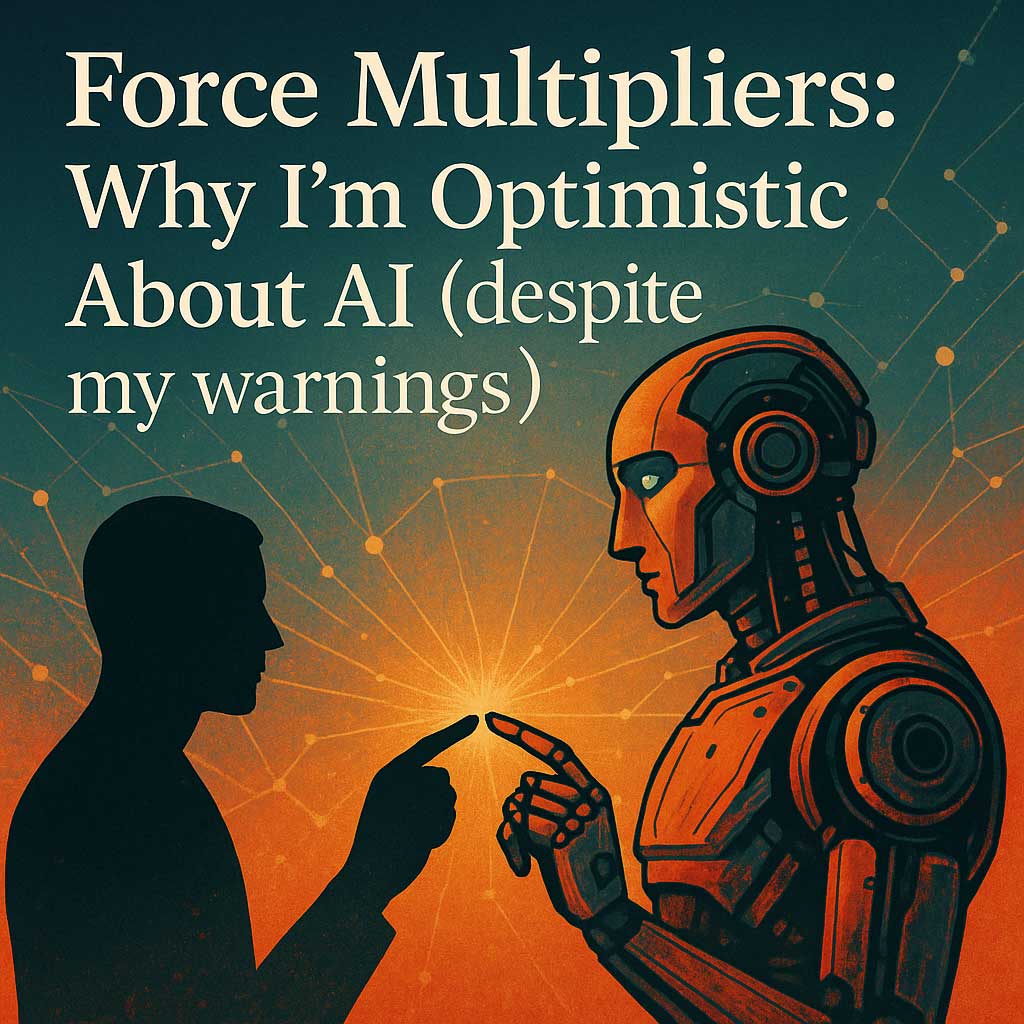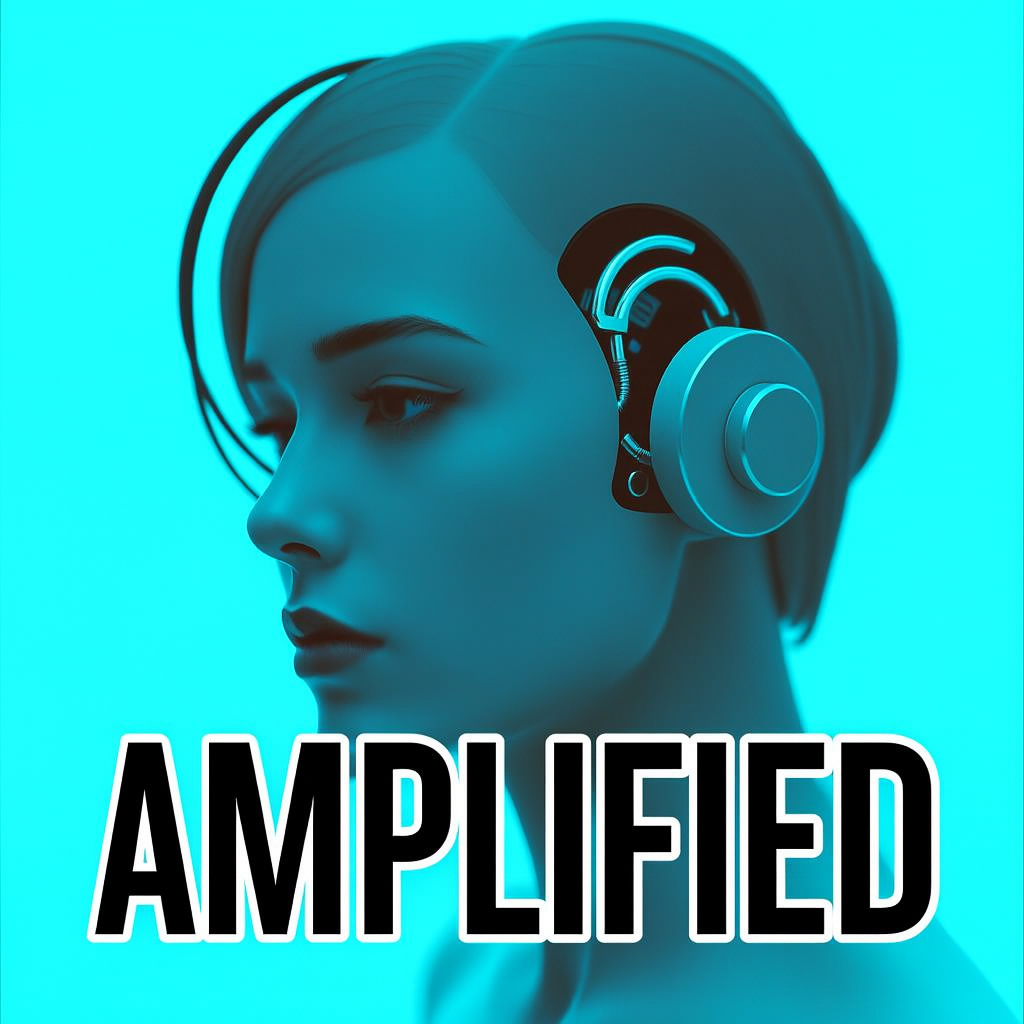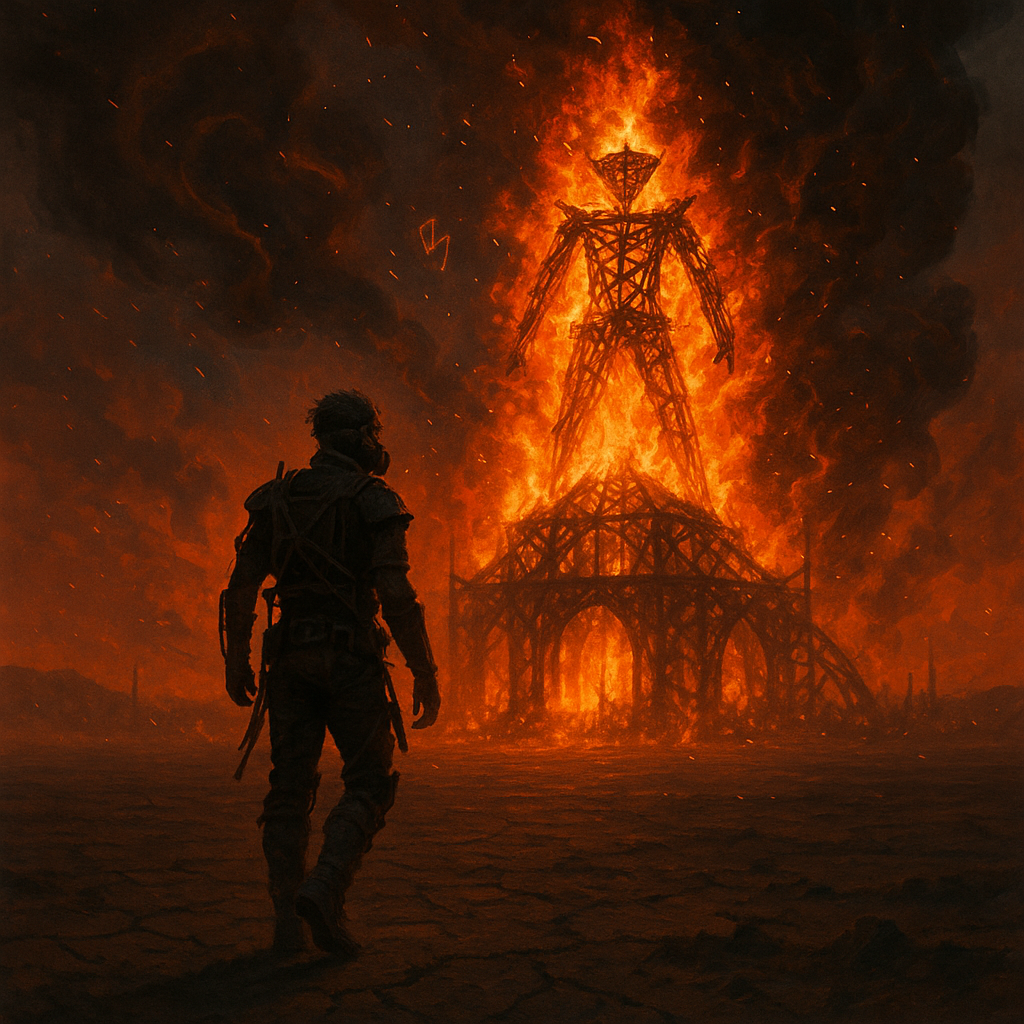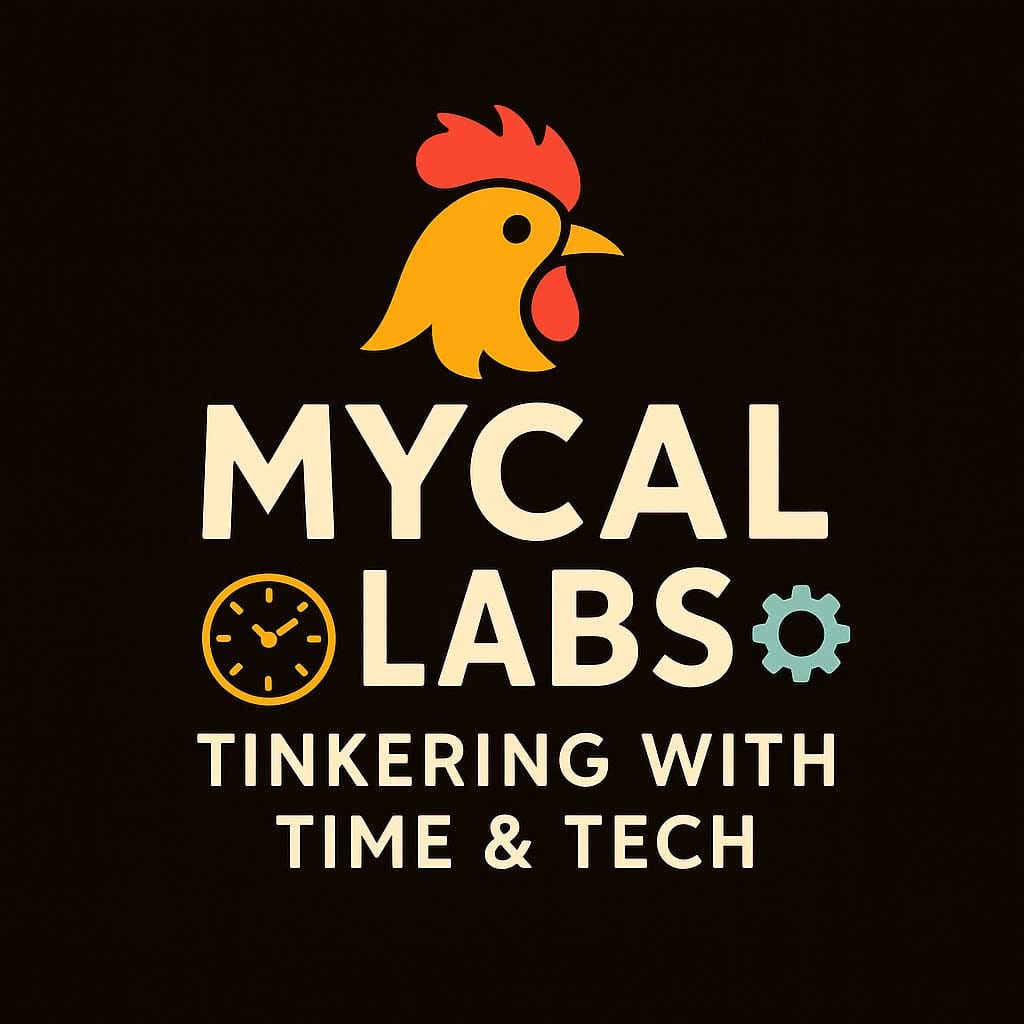Force Multipliers: Why I'm Optimistic About AI (despite my warnings)
I’ve warned about AI — but I’m not anti-AI. From hand-coded assembly in ’89 to generating full 3D scenes in seconds, I’ve seen what happens when intelligence meets amplification. Here’s why I still believe in the builders — and what happens when you embrace AI as a force multiplier.

Tinkering with Time, Tech, and Culture #5

In my last post — The Echo Chamber of Now: Why Today's Disruption Screams Louder Than the '90s — I traced the parallels between the early internet and the generative AI boom, noting how today's noise is louder, the stakes higher, and the control more subtle. That piece was a warning.
This one is a response.
Because while I worry about what AI can erase, distort, and exploit — I’ve also seen what it can unleash.
Let me be clear: I’m not anti-AI. Far from it.
AI is now the most powerful tool I’ve ever used. And I’ve been building things — networks, firmware, music, machines — since before the internet had pictures.
Today, I write code faster. I compose music I never knew I had in me. I design solar installations that pass inspection on the first try. All because I have a partner that doesn't sleep, doesn't complain, and helps me think bigger.
The Rise of the Creative Generalist
I’ll give you an example. I remember back in '89, working at the Everex Graphics Research Lab, spending weeks on a C program for a software polygon renderer targeting a frame buffer — an early precursor to the modern graphics card — on an old 8086 system. It was a manual labor of math and logic, and for the really fast parts, a little bit of inline assembly to get the bits directly on screen. It was an exercise in pure efficiency, just to draw a crude shape.
Today? I can use an AI to generate an entire 3D mesh from a text prompt, then turn it into a photorealistic rendering in minutes. It's the difference between hand-crafting every gear and commanding a factory to build the machine you designed.
That's what I mean by a force multiplier.
If you're even slightly above average in intelligence — say 110+ IQ — and you're curious, persistent, and willing to experiment, AI turns you into something wild: A force multiplier. A monster of momentum."
You don’t need a CS degree. You don’t need to master music theory. You just need an idea — and the nerve to chase it. The tools will teach you. The only requirement is that you show up — hungry, humble, and lit up with intent.
It’s not about mastering every discipline. It’s about becoming fluent in transformation.
Not a Job Killer — a Drudgery Killer
In a recent podcast appearance, Nvidia CEO Jensen Huang said:
"Every software engineer at Nvidia uses AI. Not one left behind... We’re busier than ever."
That’s the shift. AI isn’t about replacing people — it’s about replacing tedium. It takes care of the boring, repetitive, sanity-eroding parts of work and frees us to chase bigger ideas, faster.
And as Huang also put it:
"If you're not using AI, you're going to lose your job to someone who is."
That’s not a threat. It’s a wake-up call. AI isn’t optional. It’s the new baseline.
We’re Just Getting Started
AI agents are just now taking off — autonomous, goal-seeking processes that can plan, iterate, and execute on complex tasks. They're learning to talk to APIs, run backend processes, and coordinate with each other. One AI asking another for help, refining results, validating outcomes.
Soon, your dev team won’t just be people. It’ll be you, a couple friends, and a dozen specialized AIs, all running in parallel, attacking a problem from multiple angles, synthesizing breakthroughs you’d never reach alone.
That’s not the future. That’s the beta.
We’re moving from a world of one brain, one screen to a world of one idea, infinite amplification.
Soundtrack for a Shift
When I wrote "I Was Meant to Burn," I wasn’t trying to make music history. I just wanted to get a feeling out of my chest.
And AI let me do it.
Reared in Steel, burn it hot, burn it down, burn it now...
Raised in fire and steel, raised to build it all.
That’s what this feels like. Like I finally have the tools to build everything I always saw in my head.
You can hear the track here. It’s raw, it’s real, and I couldn’t have made it alone:

Final Thought
AI didn’t make me smarter.
It made me faster.
It made me bolder.
It made me more me — with less drag.
And that’s why I’m still optimistic.
Not because AI is perfect. But because people with tools — real tools — build worlds.
And the next world’s already under construction.
The future’s been listening. What are you telling it?
